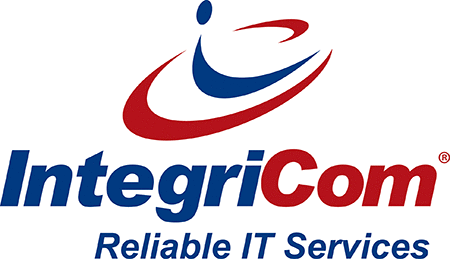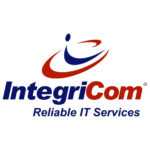Why should Gainesville businesses consider adopting a cloud-based data center? The main reasons are scalability, cost savings, and improved efficiency. Moving to the cloud reduces reliance on physical infrastructure, allowing businesses to focus on core activities. This blog explores the key benefits for Gainesville businesses.
Key Takeaways
- Gainesville businesses can significantly benefit from cloud-based data centers, which offer enhanced flexibility, scalability, cost efficiency, and robust security measures.
- The transition to cloud solutions allows organizations to convert fixed expenses into variable costs, reducing both capital expenditure and ongoing operational costs.
- Effective collaboration and productivity are bolstered through real-time data access and remote work enablement, enhancing communication and teamwork across various locations.
The Rise of Cloud-Based Data Centers
The global cloud computing market is expected to surpass $1 trillion by 2028, reflecting a significant surge in demand for cloud-based data centers. This trend is not just a global phenomenon but also resonates at the local level, where businesses in Gainesville are increasingly recognizing the value of cloud solutions.
Cloud computing services, which encompass virtual machines and virtual servers housed in data centers worldwide, provide essential computing resources such as data storage, processing power, private cloud infrastructure, network connectivity, and software services over an internet connection. This shift is driven by the need for instantaneous information and the pressure to stay competitive in a rapidly evolving digital landscape.
Global Trends in Cloud Adoption
Globally, specific businesses are gravitating towards multicloud services, a trend that highlights the growing reliance on cloud solutions. Resource-constrained government agencies and local businesses have adopted cloud services to alleviate budget pressures and reduce IT staffing requirements.
The widespread adoption of cloud computing is being driven by its flexibility, scalability, cost savings, and enhanced collaboration capabilities.
Benefits for Local Businesses
For Gainesville businesses, the benefits of cloud technology are numerous and impactful. Eliminating the need to maintain physical data centers or server systems allows businesses to significantly reduce their operational burdens and concentrate more on core functions. Data center servers provide essential computational power, run applications, process data, and support online services, thereby enhancing the capabilities of local enterprises.
Furthermore, cloud solutions are cost-effective, offering competitive advantages that help businesses meet specific needs and stay ahead in the market.
Enhanced Flexibility and Scalability
One of the most significant advantages of cloud-based data centers is the enhanced flexibility and scalability they offer:
- Businesses can create and manage a scalable IT environment with a virtual data center.
- Resources can be adjusted based on demand.
- This flexibility allows companies to convert fixed expenses into variable costs.
- Companies pay only for the resources they consume.
This unmatched scalability is a game-changer for Gainesville businesses operating in rapidly changing markets.
On-Demand Resources
Businesses can scale resources quickly with cloud services, avoiding the burden of over-provisioning. The benefits of cloud services are that they allow you to pay as you go and easily increase your resources when necessary.
Swiftly adjusting computing resources helps businesses stay agile, reduce waste, and manage infrastructure operations more effectively.
Adaptability to Market Changes
Adapting swiftly to market changes is crucial in today’s fast-paced business environment. Cloud solutions enable rapid resource scaling, allowing organizations to respond promptly to market fluctuations. Real-time data access allows teams to make swift decisions and respond quickly to customer needs, enhancing overall operational efficiency.
Combining agility with real-time data access empowers businesses to navigate market changes effectively through seamless integration.
Cost Efficiency and Financial Benefits
The financial benefits of cloud adoption are profound, with over 90% of organizations reportedly using cloud services. This means reduced upfront costs and converting capital expenses to operating expenses for Gainesville businesses, facilitating more flexible financial management.
Moving to cloud solutions reduces the need for significant initial investments and leads to ongoing cost savings through reduced maintenance and energy expenditures.
Reduced Capital Expenditure
Adopting cloud services eliminates the need for substantial initial investments in physical hardware. Avoiding hefty upfront costs associated with purchasing hardware and related underlying infrastructure allows businesses to allocate their financial resources more strategically.
Cloud-based data centers significantly reduce the need for physical infrastructure, lowering costs across the board and providing a cost-effective solution for businesses.
Operational Cost Savings
Adopting cloud solutions results in ongoing savings through reduced maintenance and energy expenditures. The pay-as-you-go pricing model allows organizations to only pay for the resources they utilize, enhancing cost control.
Adjusting cloud resources to match varying workloads helps businesses prevent unnecessary expenditure, making cloud solutions highly cost-effective.
Robust Security Measures
With data breaches as a constant threat, robust data center security is paramount for safeguarding business data and maintaining client trust. Essential security measures in virtual data centers help mitigate risks associated with data breaches.
Companies like IntegriCom implement rigorous security protocols, including multi-layered cybersecurity strategies with firewalls, encryption, and 24/7 monitoring to ensure data security.
Advanced Security Protocols
Safeguarding data integrity during transit requires encryption and secure transmission protocols in a secure environment. Multi-layered security strategies enhance protection by employing various measures across different areas of the IT infrastructure.
Regularly updating security protocols and tools is critical to keep pace with evolving cyber threats in cloud environments.
Compliance and Data Privacy
Adhering to industry standards is critical for protecting sensitive data and avoiding legal issues. Cloud-based data centers meet various industry compliance requirements, ensuring that businesses operate within legal frameworks. Adhering to compliance standards and employing advanced security measures enhances credibility and trust with customers for Gainesville businesses.
Disaster Recovery and Business Continuity
Robust disaster recovery solutions and advanced security features in cloud-based data centers are essential for ensuring business continuity, backed by a resilient infrastructure. Mobile access to disaster preparedness applications through cloud services ensures a quick response in emergencies.
Built-In Redundancy
Data centers like those offered by Switch provide multiple layers of redundancy to ensure data availability and reliability. Server configurations in data centers are designed in clusters for redundancy and fault tolerance, ensuring seamless operation.
Cloud services enhance local businesses’ resilience, allowing for quicker recovery from disruptions and greater adaptability to market changes through cloud integration, cloud readiness, and cloud services.
Rapid Recovery Options
Rapid recovery options minimize business disruption during a disaster. Built-in redundancy in cloud solutions protects against data loss and downtime, ensuring swift recovery and continuity of operations.
Improved Collaboration and Productivity
Teams can communicate and share ideas in real-time with cloud technologies, fostering a collaborative work environment. Cloud-based data centers enhance teamwork by enabling real-time collaboration, regardless of physical location.
This capability enhances creativity, reduces project timelines, and improves overall productivity.
Real-Time Data Access
Immediate data updates through cloud solutions eliminate latency and improve the efficiency of collaborative tasks. Real-time data access supports immediate data processing, allowing teams to work on projects concurrently and enhancing overall productivity through real-time data processing.
Remote Work Enablement
Secure access to essential tools and data through cloud services enables efficient work from any location. Secure connections and multi-factor authentication enable employees to access critical tools and data from anywhere, promoting flexibility in work arrangements.
Environmental Responsibility
Cloud solutions benefit not only business operations but also the environment. Providers like Microsoft Azure use renewable energy sources and innovative cooling techniques to operate efficiently, thereby reducing environmental impact.
Companies like Meta demonstrate a strong commitment to innovation and environmental responsibility, emphasizing the importance of sustainable practices.
Energy Efficiency
Power consumption is a critical concern regarding data center operations in Gainesville. Advanced cooling techniques and renewable energy sources are being adopted by data centers to enhance energy efficiency.
Meta data centers in Gainesville, Georgia, adhere to sustainability and scalability principles, showcasing how cloud services can lead to lower energy expenses and greater efficiency.
Reduced Carbon Footprint
Shifting to cloud services reduces the need for physical hardware, contributing to a lower overall carbon footprint. This transition reduces the carbon footprint of businesses by decreasing physical infrastructure, saving costs, and reducing energy consumption and waste.
By adopting cloud solutions, Gainesville businesses can enhance their environmental responsibility, supporting both sustainability and operational efficiency.
Choosing the Right Cloud Solution
Choosing the right cloud solution is crucial for optimizing IT operations and focusing on core activities. Assessing various factors such as security, performance, and scalability ensures the chosen cloud provider aligns with unique business needs.
Flexible design in data centers allows for seamless expansion to meet rising data demands, providing operational agility. Transitioning to the cloud involves complex infrastructure planning, training, and expertise, which can be a significant hurdle.
Public vs. Private vs. Hybrid Cloud
Public, Private, and Hybrid are the three main cloud deployment models:
- Public clouds offer scalability and cost-effectiveness.
- Private clouds provide enhanced security and control.
- Hybrid cloud models combine the best of both worlds, balancing different business needs.
Understanding these cloud service models is essential for making informed decisions and choosing the most suitable cloud solution.
Evaluating Cloud Providers
Evaluating cloud providers should prioritize robust security measures to protect sensitive data. Cloud providers commonly implement advanced encryption, firewalls, and multi-layered cybersecurity protocols. Compliance with industry standards and regulations ensures data privacy and protection.
Reduced capital expenditure and operational cost savings are critical financial factors to consider. Additionally, cloud-based data centers include redundancy, protecting against data loss and downtime, and offering swift recovery options to minimize business disruption. You can also evaluate premises data storage and cloud data storage to understand which works better for your business.
Technical Bottom Line
Cloud-based data centers present a transformative opportunity for businesses in Gainesville. With benefits like enhanced flexibility, scalability, cost efficiency, and strong security measures, cloud technology redefines how companies approach IT infrastructure. The ability to adapt quickly, maintain business continuity, and boost collaboration makes cloud solutions an essential tool for staying competitive in today’s digital landscape.
At IntegriCom, we specialize in helping businesses seamlessly transition to cloud-based solutions. As a trusted provider of IT services in Gainesville, we ensure that your organization leverages cloud technology to improve efficiency, scalability, and resilience. Let us guide you through the process of modernizing your IT infrastructure, so you can focus on driving growth and achieving long-term success. Now is the perfect time to make the switch and future-proof your business!
Frequently Asked Questions
Why should Gainesville businesses consider cloud-based data centers?
Gainesville businesses should prioritize cloud-based data centers for their flexibility, scalability, cost efficiency, robust security, and enhanced collaboration, which collectively contribute to greater productivity. Transitioning to the cloud can significantly optimize operations and reduce overall costs.
What are the global trends in cloud adoption?
Businesses worldwide are increasingly adopting multicloud services due to the demand for flexibility, scalability, and cost savings. This trend reflects the growing importance of instantaneous information in today’s market.
How do cloud solutions enhance business continuity?
Cloud solutions enhance business continuity by offering robust disaster recovery, built-in redundancy, and rapid recovery options, ensuring high availability and minimizing disruptions during adverse events.
What are the environmental benefits of cloud adoption?
Adopting cloud services significantly lowers energy consumption and carbon footprints by minimizing the need for physical hardware. Additionally, many cloud providers leverage renewable energy and advanced cooling techniques to further enhance energy efficiency.
How should businesses choose the right cloud solution?
To choose the right cloud solution, businesses must evaluate security, performance, scalability, and compliance with industry standards while understanding various cloud deployment models and carefully assessing different cloud providers. This thorough analysis will lead to a more informed decision that aligns with business needs.


